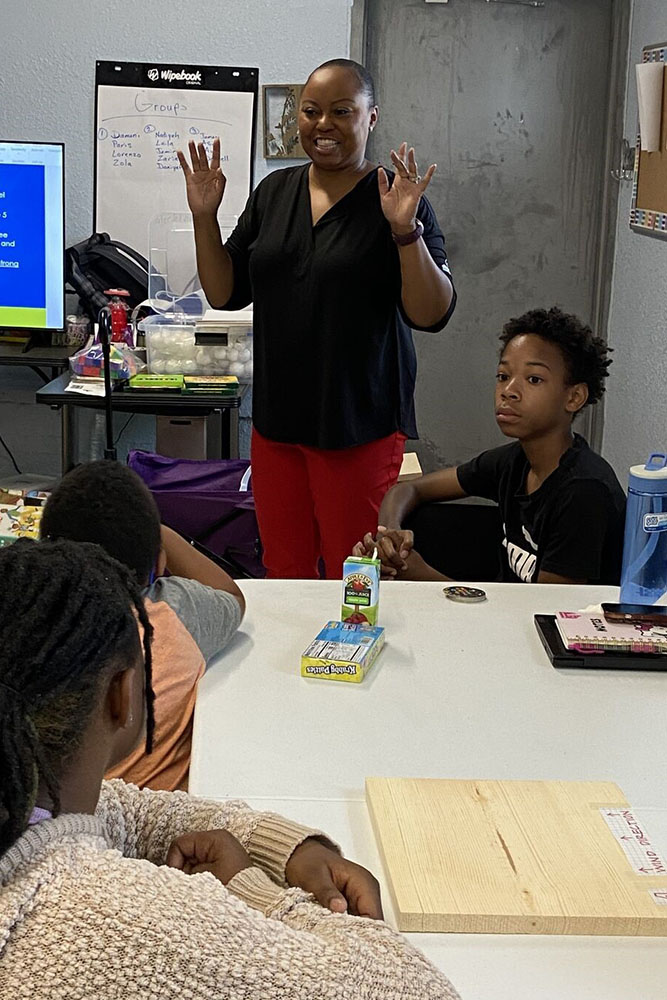JE Dunn is committed to the success of future generations. Building the Future is our K-12 construction education initiative, centered on bringing awareness to careers in construction.

The construction industry is one of the fastest-growing industries in the country and needs 650,000 additional workers to keep up with demand in the coming years. Plus, construction professionals are well paid. Most skilled trades offer paid on-the-job training, and average starting wage for an apprentices (without a degree) is about $21 / hour.
No, there are many construction careers that do not require a degree. This industry is unique because there are multiple career paths and opportunities for various levels of education.
To prepare for a career in construction, students should develop technical skills such as mathematics, measurement, blueprint reading, and knowledge of construction technologies and safety standards. They should also build soft skills like communication, teamwork, problem-solving, time management, and attention to detail. A strong work ethic, reliability, physical stamina, and adaptability are essential. Participating in vocational programs, internships, and extracurricular activities, along with pursuing certifications and lifelong learning, will provide hands-on experience and keep students competitive. Engaging in school or community construction projects can help apply classroom knowledge and build practical experience.
To prepare for a career in construction, your student should focus on taking mathematics courses, such as algebra, geometry, and trigonometry, to understand construction measurements and calculations. Additionally, science courses like physics and basic chemistry are essential for grasping the principles of construction materials and structural forces. Technical drawing or computer-aided design (CAD) courses are also crucial for developing blueprint reading and design skills. These subjects will provide a strong foundation for a successful career in construction.
To prepare for a career in skilled trades, your student should take mathematics courses such as algebra and geometry to develop problem-solving and measurement skills. Science courses, particularly physics and basic chemistry, are important for understanding the properties of materials and the mechanics involved in various trades. Additionally, enrolling in technical education or vocational courses focused on specific trades, such as electrical, plumbing, carpentry, or HVAC, will provide hands-on experience and practical skills crucial for a successful career in the skilled trades.
There are construction career opportunities for you too! Do you like working with your hands? Are you interested in project management? The possibilities are endless in the construction industry.
Chrissy Chandler
E: buildingthefuture@jedunn.com
Mitchell Pivovar
E: pivovar@jedunn.com
Kisha Bausby
E: diversity@jedunn.com